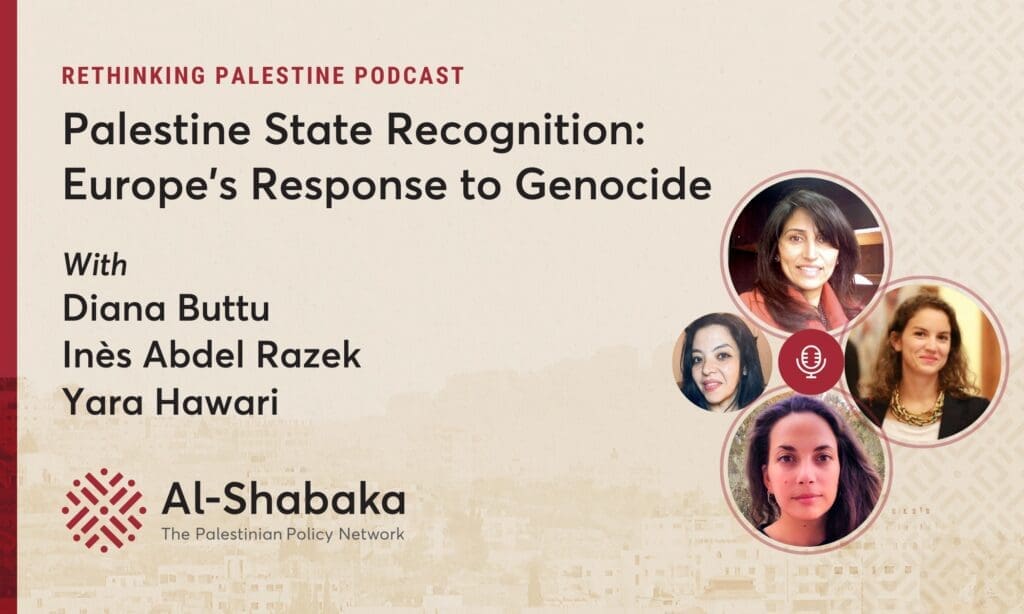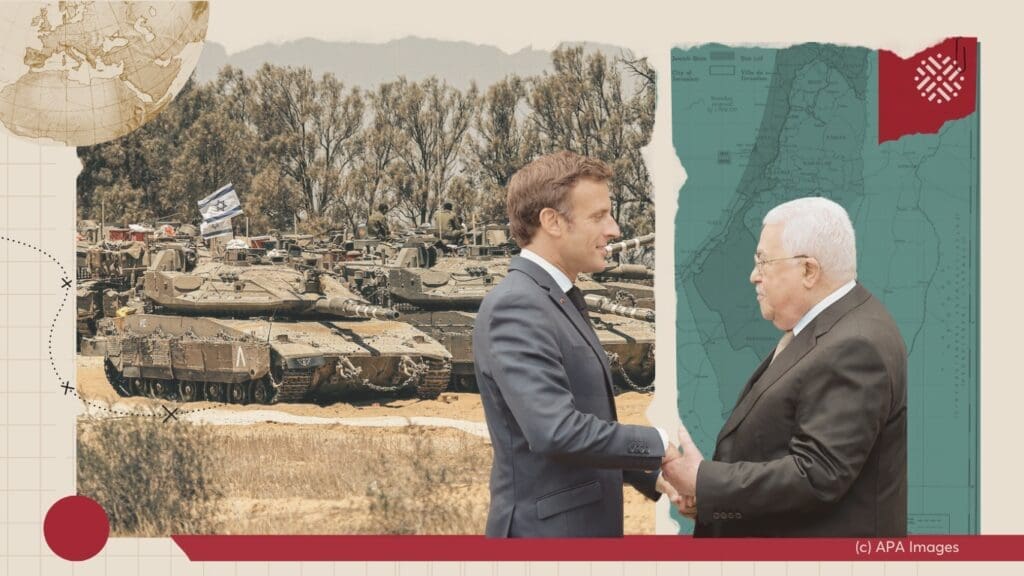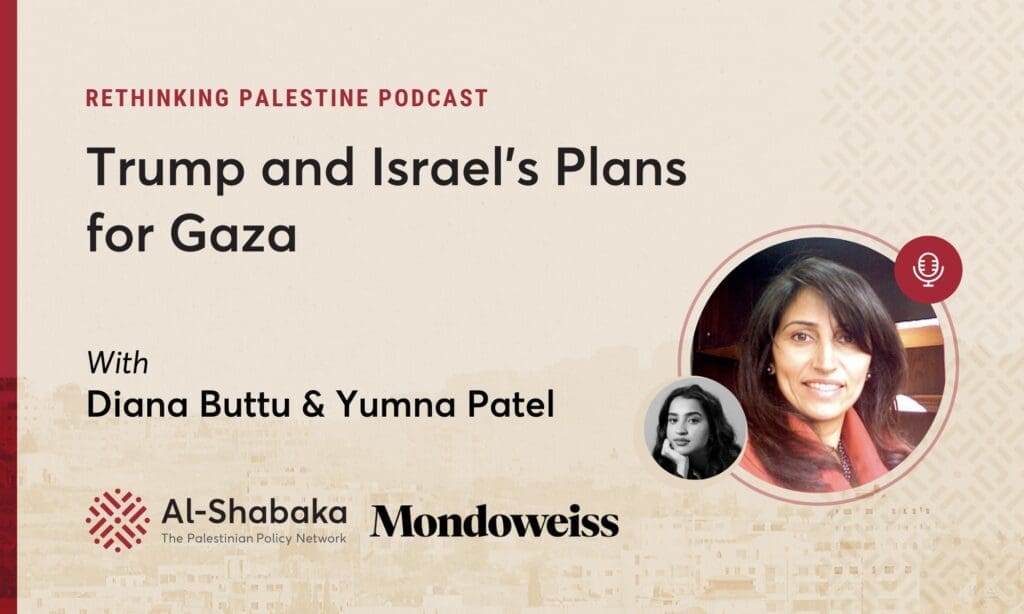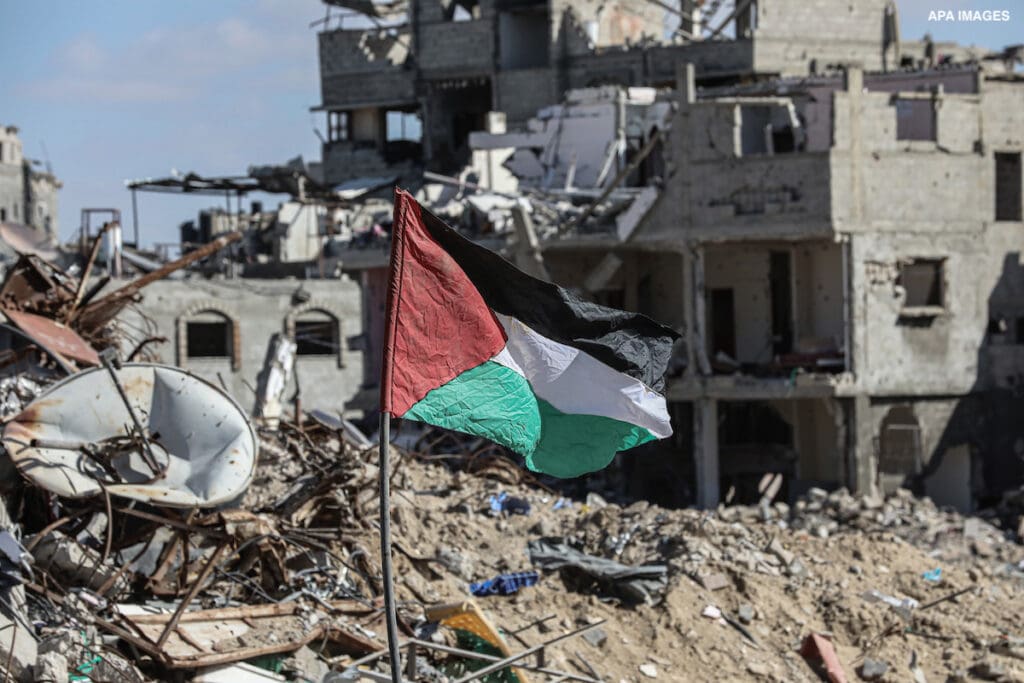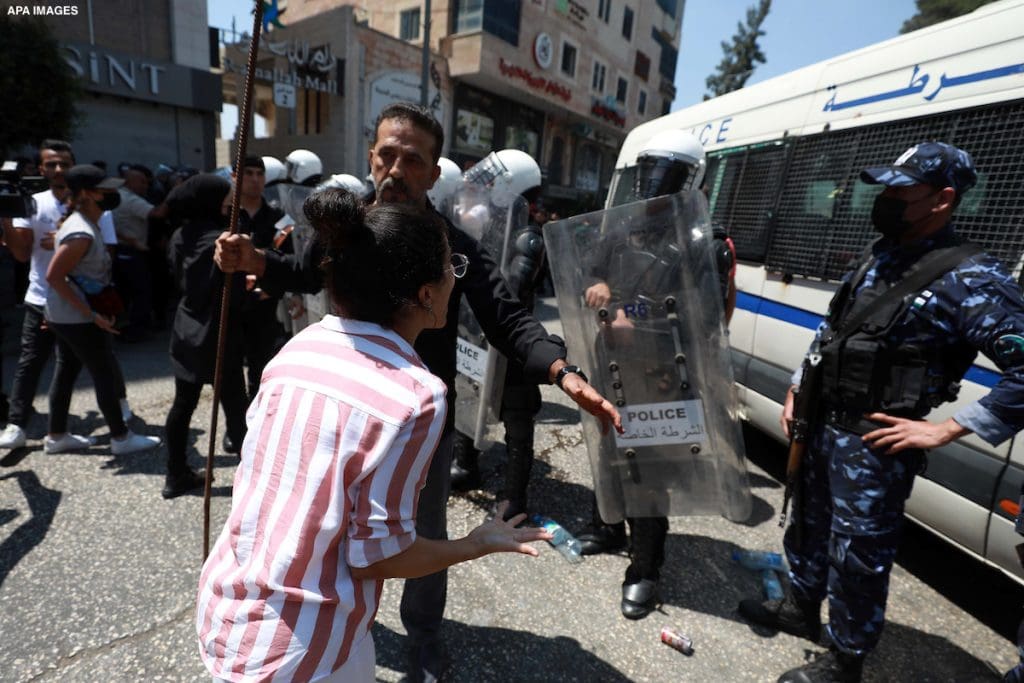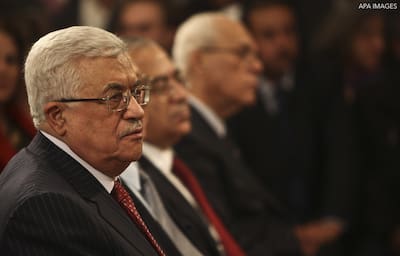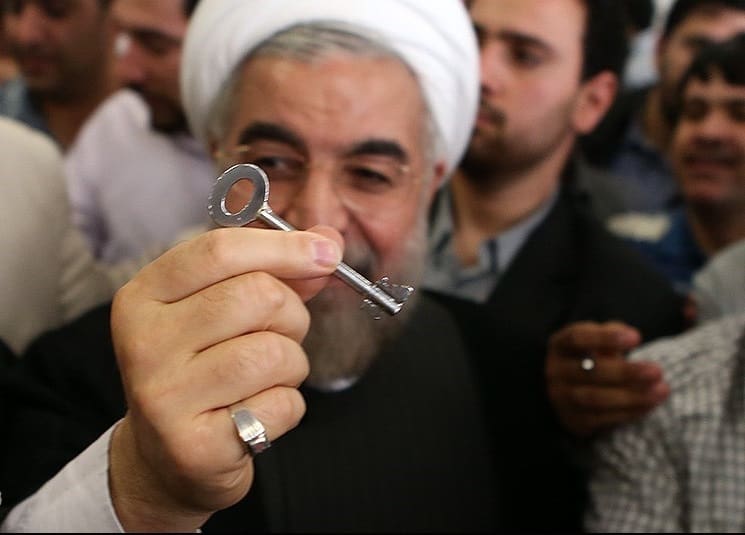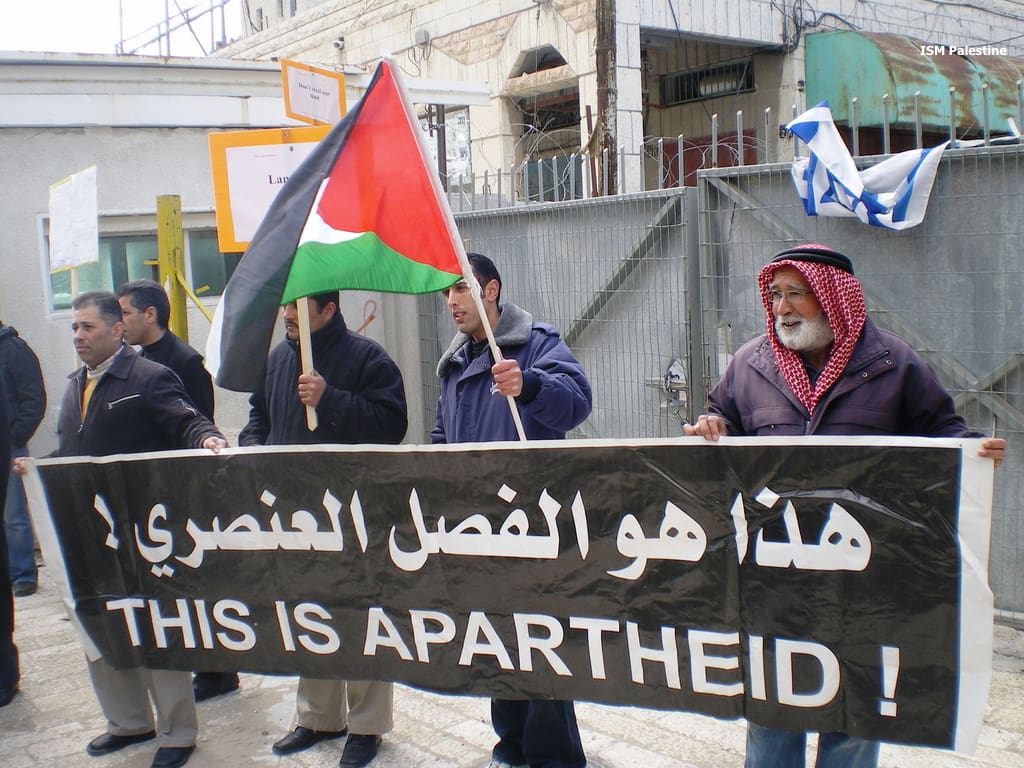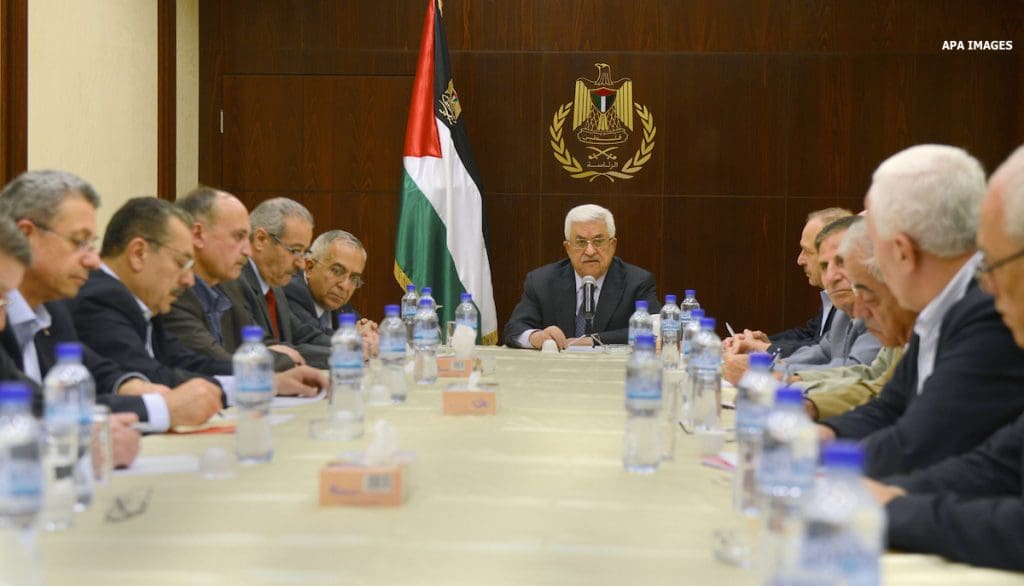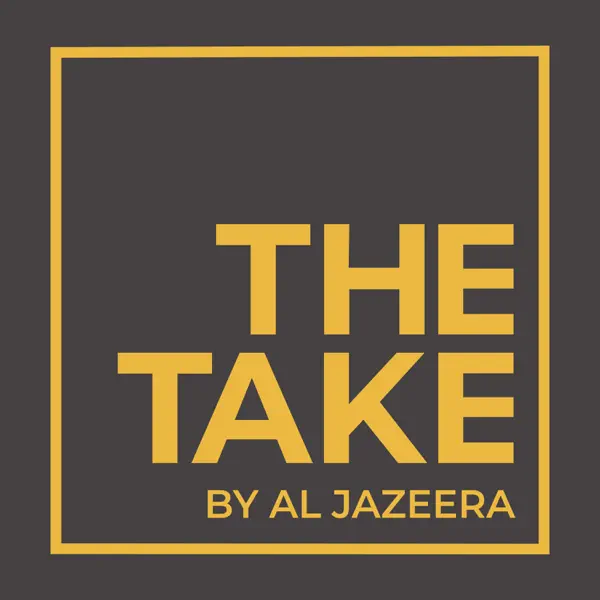Diana Buttu is a lawyer who previously served as a legal advisor to the Palestinian negotiating team and was part of the team that assisted in the successful litigation of the Wall before the International Court of Justice. She frequently comments on Palestine for international news media outlets such as CNN and BBC; is a political analyst for Al Jazeera International and is a regular contributor to The Middle East magazine. She maintains a law practice in Palestine, focusing on international human rights law.
From this author
In this episode, Al-Shabaka policy analysts Diana Buttu, Inès Abdel Razek, and Al-Shabaka’s Co-Director Yara Hawari, are interviewed by Al-Shabaka's commissioning editor Dina Hussein on the recent wave of Palestine State recognition by several European powers as a policy response to the ongoing genocide in Gaza. This podcast episode was originally recorded in June 2025.




+
Since October 2023, Israel’s assault on Gaza has produced one of the most catastrophic humanitarian crises in recent history—an unfolding genocide enabled by world powers and continuing unabated despite the sweeping global solidarity it has sparked. Alongside relentless bombardment and mass displacement, the Israeli regime is waging a deliberate campaign of starvation.
In response to this Israeli-manufactured catastrophe, several European states have begun recognizing or signaling their intent to recognize the State of Palestine. Most recently, France announced its intention to recognize a Palestinian state at the UN General Assembly in September. The UK has stated it will follow suit unless Israel abides by a ceasefire and recommits to a two-state solution. The recent wave of symbolic recognitions that began in 2024 now appears to be the only step many European powers are willing to take in the face of genocide, following nearly two years of moral, material, and diplomatic support for the Israeli regime as well as near-total impunity.
This roundtable conversation with Al Shabaka policy analysts Diana Buttu, Inès Abdel Razek, and Al Shabaka’s co-director, Yara Hawari, asks: Why now? What political or strategic interests are driving this wave of recognition? And what does it mean to recognize a Palestinian state, on paper, while leaving intact the structures of occupation, apartheid, and the genocidal regime that sustains them?



Diana Buttu and Mondoweiss’s Yumna Patel discuss the challenges facing the ceasefire in Gaza in the context of the Trump administration and its support for Israeli genocide and ethnic cleansing in Gaza and Palestine. This is the second episode of a three-part collaboration series between Al-Shabaka and Mondoweiss.

Diana Buttu· Feb 9, 2025
On January 15, 2025, Qatar announced a ceasefire agreement between the Israeli regime and Hamas. The long-awaited deal, mediated by Qatar, Egypt, and the United States, promised an end to 15 months of genocidal assault on Gaza, during which Israeli forces killed at least 64,260 Palestinians and reduced much of the strip to rubble.
While the implementation of the ceasefire offers critical relief for Palestinians in Gaza who have been enduring and resisting genocide, skepticism remains over the feasibility of its full implementation. In this roundtable, Al Shabaka analysts Shatha Abdulsamad, Basil Farraj, Talal Abu Rokbeh, and Diana Buttu weigh in on the different aspects of the ceasefire deal and what they mean in the broader context of Israeli settler colonial occupation of Palestine.




+
Punctuated by the outbreak of the Unity Intifada in May 2021, the trajectory of Palestinian resistance is experiencing a watershed phase marked by new actors and themes. With the effective neutralization of the Palestinian Liberation Organization (PLO) since the 1993 Oslo Accords, the deepening geopolitical fragmentation of Palestinians across colonized Palestine and the world, and the global shift to cyberspace, new opportunities — and threats — to Palestinian resistance have emerged.




+
Sam Bahour,Rana Barakat,Mary Nazzal-Batayneh, + MoreOroub el-Abed,Nadia Hijab,Victor Kashkoush,Anis Kassim,Osamah Khalil,Mouin Rabbani,Jamil Hilal,Loubna Qutami,Haidar Eid,Yara Hawari,Nadim Nashif,Raya Naamneh,Omar Barghouti,Marwa Fatafta,Tariq Dana,Hatem Bazian,Noura Erakat,Alaa Tartir,Issam Younis,Nada Awad,Diana Buttu,Ingrid Jaradat Gassner· Aug 26, 2021
Palestinians in the West Bank and Gaza are bracing for the first general elections to take place in 15 years, while the Palestinian Authority seeks to renew its legitimacy amid shifting regional and global realities.



Trump's efforts to bolster the Palestinian economy in lieu of concrete political action are part of a long history of initiatives designed to forfeit Palestinian rights under the guise of "economic peace."


Trump’s administration and Israel are pressuring Palestinians to accept a disastrous deal in part to cement closer relations with Gulf states against Iran. Al-Shabaka’s Diana Buttu, Osamah Khalil, and Mouin Rabbani examine how US actions work to the detriment of Palestinians, the repercussions of these developments on Hamas-Iran relations, and what Palestinians can do in response.



In our first Palestine Policy Lab session, Al-Shabaka analysts Yara Hawari and Diana Buttu weigh in on the usefulness of the Apartheid framework in the Palestinian context.


A Palestinian leadership vacuum looms due to the ill health of the secretary general of the Palestine Liberation Organization (PLO), Saeb Erekat, and the frailty of the Palestinian Authority (PA) President Mahmoud Abbas, who also heads the PLO and its main constituent party Fatah.










